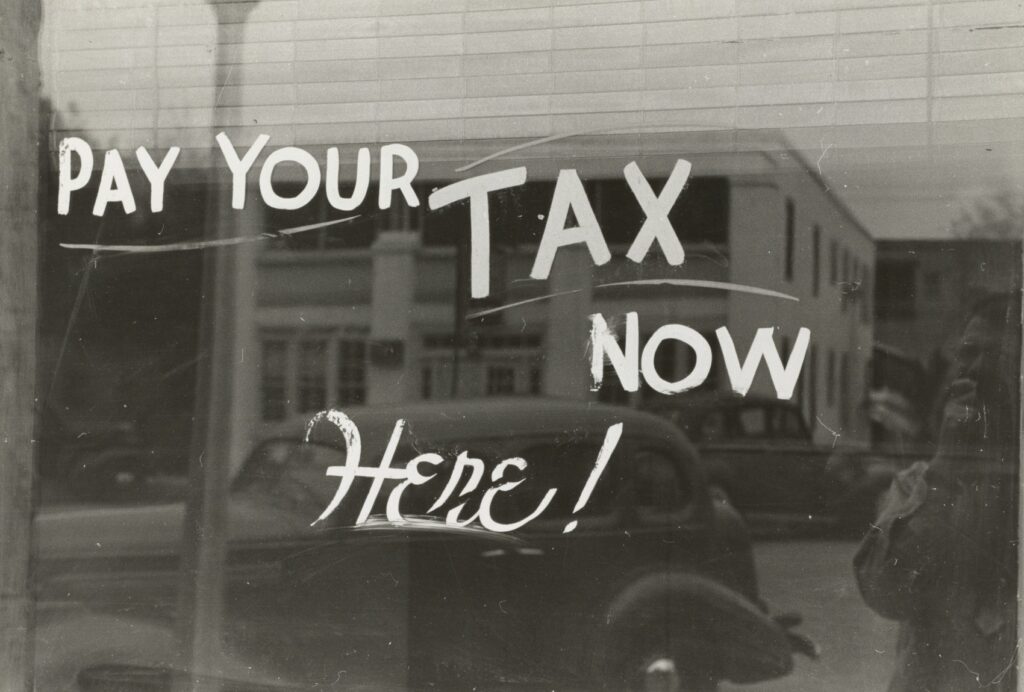Blog
Securing Success: A Legal Protection Blueprint for Philippine Businesses

In the realm of business operations in the Philippines, understanding and adhering to legal requirements are critical components of sustained success. This comprehensive guide aims to demystify the essential aspects of legal protection for current and growing businesses in the country.
Business Permit Renewals: Securing the Foundation
Regardless of the type of entity under which the business is operating, whether a sole proprietorship, a standard domestic corporation, a one-person corporation, or a partnership, a business permit is essential for businesses legally operate in the Philippines. The issuance of a business permit serves as a mechanism for Local Government Units (LGUs) to oversee and manage all active businesses within their respective jurisdictions. This regulatory process ensures that businesses pay their taxes and dues to the LGUs where they conduct their operations.
A business permit is only valid for the year it was applied for, which is why it must be updated and renewed annually. Remember, a business without a renewed business permit is technically not entitled to operate the business within the LGU. Continuing operations with an expired business permit may subject you and your business to a (1) Closure Order; (2) fines amounting to twenty-five percent (25%) of the taxes/fees not paid on time and an interest rate of a maximum of two percent (2%) per month of non-payment;1 and (3) confiscation of assets and other penalties prescribed by your LGU.
Traditionally, the deadline for business permit renewals is on January 20 of each year. However, you may check with your LGUs to know whether they have extended their deadline for business permit renewals without surcharges and penalties. Here are some LGUs within Metro Manila that have extended their deadline:
- Parañaque City – 28 February 2024
- Valenzuela City – 03 February 2024
- Marikina City – 31 March 2024
- Mandaluyong City – 22 January 2024
The renewal process requires several documents and payment for necessary fees such as the annual registration fee of P500. Requirements may differ based on your LGU. Thus, it is best to check your with your LGU for a complete list of business permit renewal requirements. Below, we have provided an overview of the steps and documents that are commonly requested by the LGUs in order to successfully renew your business permit.

Renew your Barangay Business Permit
- Application Form
- Barangay Business Permit for the previous year
- Official Receipt for the previous year
- Latest Community Tax Certificate/Cedula
- Payment of fees
Renew your Mayor’s Permit
- Application Form
- Barangay Business Permit for the current year
- Mayor’s Permit for the previous year
- Official Receipt for the Mayor’s Permit for the previous year
- Audited Financial Statement /Income Tax Return/Monthly or quarterly Value Added Tax Returns or Affidavit of No Operations, if your business did not operate in the previous year
- Notarized Contract of Lease if renting
- Comprehensive General Liability Insurance
- Community Tax Certificate/Cedula
- Payment of Fees (Local Business Tax, Mayor’s Permit Fee, Sanitary Inspection Fee, and other fees as may be imposed by your LGU)
Some LGUs have begun embracing digitalization by offering online renewal of business permits. Of course, it is always best to check with your LGU if this option is available to you, but here are some LGUs that have offered online renewal options:
- Parañaque City
- Manila City
- Quezon City
- Muntinlupa City
- Navotas City
- Valenzuela City

Tax Compliance: Navigating the BIR Landscape
In the past, business owners are required to renew their BIR Certificate of Registration (COR) by filing BIR Form No. 0605 and paying the Php500 Annual Registration Fee (ARF) on or before January 31 of every year.
On 08 January 2024, however, the Bureau of Internal Revenue (BIR) issued a BIR Advisory in compliance with Republic Act No. 11976, otherwise known as the “Ease of Paying Taxes Act”, exempting taxpayers from filing BIR Form No. 0605 and paying the Php500 Annual Registration Fee (ARF) for the renewal of the COR, which takes effect on 22 January 2024.
As a result, a business owner no longer needs to renew his/her BIR COR annually. A business owner with an existing BIR COR will retain its validity, but he/she may opt to update or replace the COR on or before 31 December 2024 at the Revenue District Office where the business is registered by surrendering the old COR.

Intellectual Property Rights: Guarding Your Intangible Assets
Intellectual Property (IP) rights encompass legal protections for creations of the mind, providing exclusive rights to individuals or entities for their inventions, literary and artistic works, designs, symbols, names, and more. These are considered business assets, and in order to protect them, here are some legal mechanisms available to you and your business:
- Trademark registration
You can register your trademarks with the Intellectual Property Office of the Philippines (IPOPHL) to protect your brands from unauthorized use. Trademark registration provides exclusive rights to use the registered mark in connection with the goods or services it represents.
2. Patent protection
Inventors can apply for patent protection to safeguard their inventions. This exclusive right allows inventors to prevent others from making, using, or selling the patented invention without permission.
3. Copyright protection
Copyright automatically protects original works of authorship upon creation. However, registering works with IPOPHL provides additional evidence of ownership and facilitates legal action in case of infringement.
4. Industrial design registration
Industrial designs, which refer to the ornamental or aesthetic aspects of an article, can be registered with IPOPHL for protection. This prevents others from using similar designs without permission.
If your business involves trademarks such as logos and word marks, it is essential to maintain the same. One key requirement for trademark maintenance is the submission of the Declaration of Actual Use (DAU) to the Intellectual Property Office of the Philippines (IPOPHIL) for your registered trademarks.
Here are the important dates to remember when filing for a DAU:
- 3rd Year DAU: Within three (3) years from the filing of the trademark application
- 5th Year DAU: Within one (1) year from the fifth (5th) anniversary of the registration of the mark.
- Renewal DAU: Within one (1) year from the fifth (5th) anniversary of each renewal.
- Mid-Renewal DAU: As per Rule 204 of IPOPHL MC No. 17-010, a DAU must be submitted for renewed registrations within one (1) year from the date of renewal of the registration. This requirement only applies for registered marks due for renewal on 01 January 2017 and onwards, regardless of the filing date of the Request for Renewal.

Labor Laws: Ensuring Employee Welfare
Labor laws play a crucial role in the legal framework governing businesses in the Philippines. These laws are designed to protect the rights of employees, establish fair employment practices, and promote a harmonious relationship between employers and workers. Here are key points regarding labor laws that you are mandated to comply with:
- Working Hours and Overtime
The standard working hours in the Philippines are eight (8) hours per day.2 Any work performed beyond these hours is considered overtime, and employees are entitled to additional compensation equivalent to his/her regular wage plus at least twenty-five percent (25%) thereof.3
2. Minimum Wage
The government sets minimum wage rates for different regions and industries. Employers are obligated to pay their employees at least the minimum wage, which is periodically adjusted to reflect changes in the cost of living. Currently, the minimum wage rate in the National Capital Region is Php610.00 for the non-agricultural sector, and Php573 for the agricultural sector, service/retail establishments employing fifteen (15) workers or less and manufacturing establishments regularly employing less than ten (10) workers.4
3. Rest Periods
For every 8-hour shift of the employees, employers are mandated to give them a meal period of not less than sixty (60) minutes time off for their regular meals.5 Employers are likewise obligated to provide each of his/her employees a period of not less than twenty-four (24) consecutive hours after every six (6) consecutive normal work days.
4. Night Shift Differential
Employees working between 10:00 PM and 6:00 AM are entitled to a night shift differential of not less than ten percent (10%) of their regular wage for each hour of work, an additional compensation to recognize the challenges of working during nighttime hours.6
5. Holiday Pay
Employees who work on regular holidays are entitled to receive their regular daily wage plus an additional 100%. If they work on a special non-working day, they receive an additional 30% of their daily wage.
Regular holidays include New Year’s Day, Maundy Thursday, Good Friday, Araw ng Kagitingan, Labor Day, Independence Day, National Heroes Day, Bonifacio Day, Christmas Day, Rizal Day.7
6. Leave Benefits
Labor laws in the Philippines provide for various leave benefits including a yearly service incentive leave of five (5) days with pay for every employee who has rendered at least one year of service8, annual vacation leave, sick leave, and maternity leave.
7. Termination
The Labor Code outlines the procedures and requirements for termination of employment. Employers must comply with due process, and employees with regular status enjoy security of tenure protection.
Protect Your Business: Consult the Right People
In the dynamic landscape of Philippine business, legal protection is not merely a formality but a strategic necessity. By understanding and adhering to registration processes, tax compliances, intellectual property regulations, and labor laws, businesses can fortify themselves against legal challenges and pave the way for sustainable growth.
Take proactive steps today to safeguard your business. Consult with legal and compliance experts who can provide tailored guidance, ensuring that your business is not only compliant, but strategically positioned for success in the evolving business environment.
For any questions or concerns related to any of the legal protection for Philippine businesses discussed in this article, you may contact us at info@aja.law.
Prepared by Cheza Biliran and Agatha Macalalad.
Footnotes
- Section 168 of the Local Government Code.
- Article 83 of the Labor Code.
- Article 87 of the Labor Code.
- Wage Order No. NCR-24.
- Article 85 of the Labor Code.
- Article 86 of the Labor Code.
- Article 94 of the Labor Code.
- Article 95 of the Labor Code.






